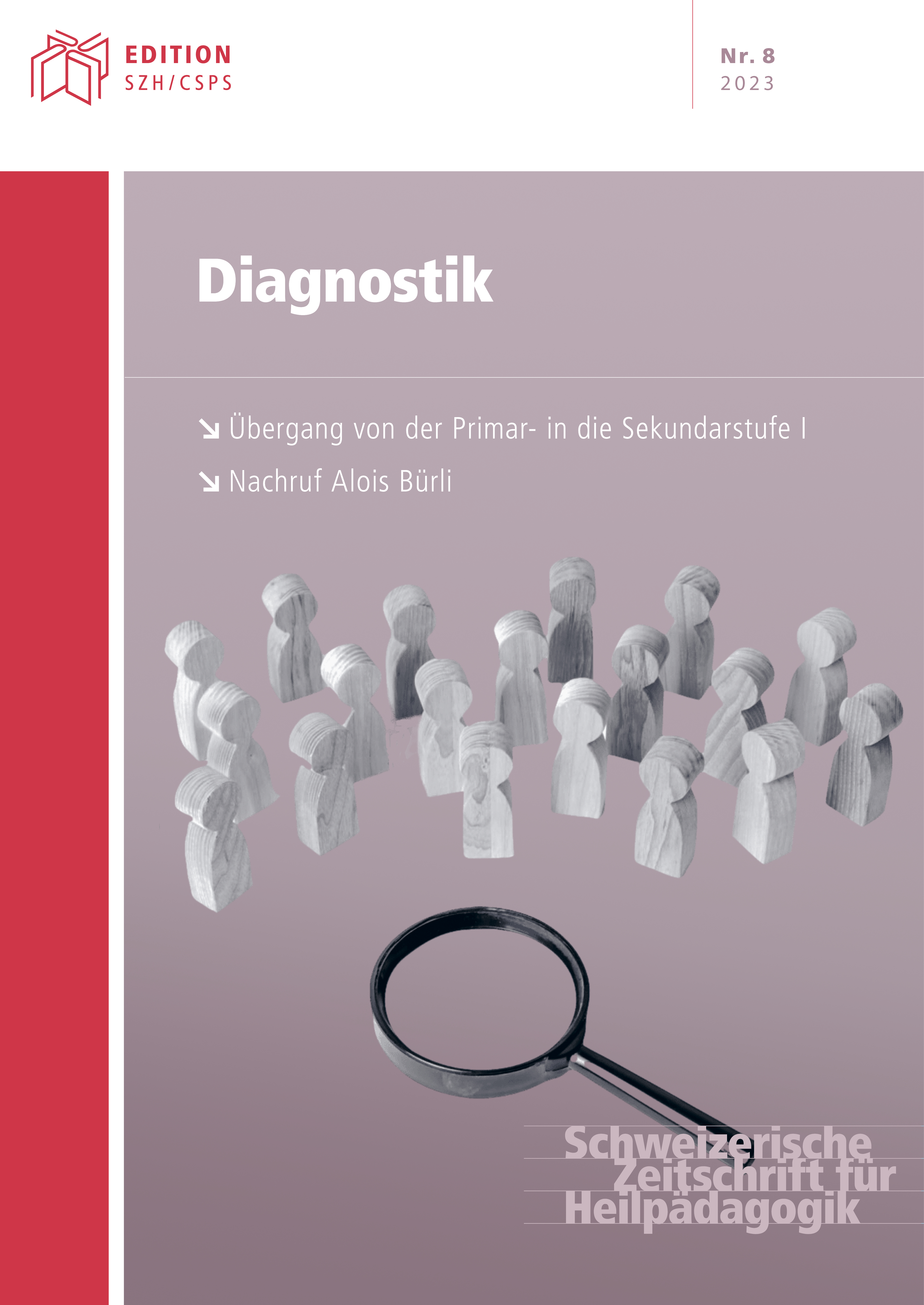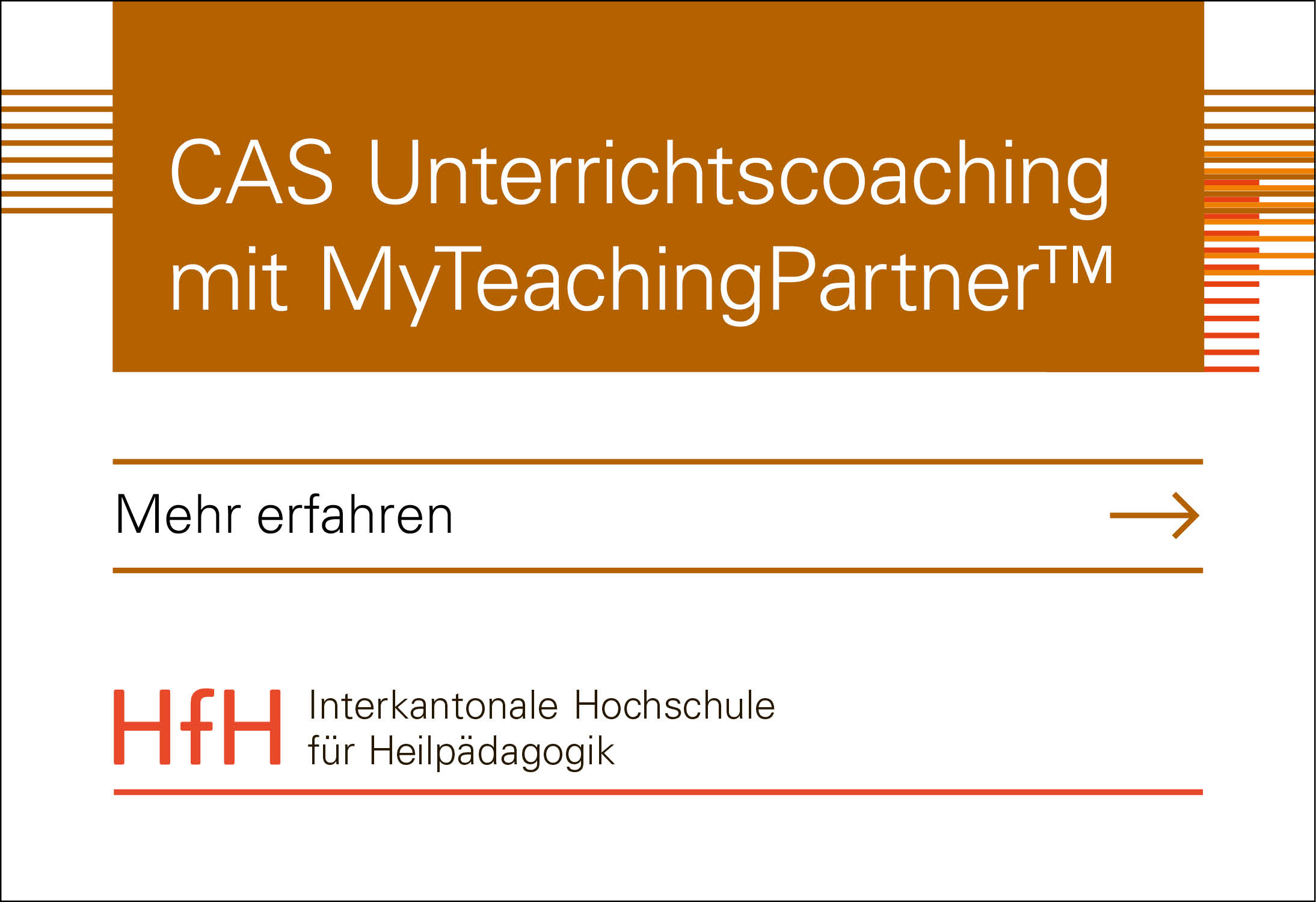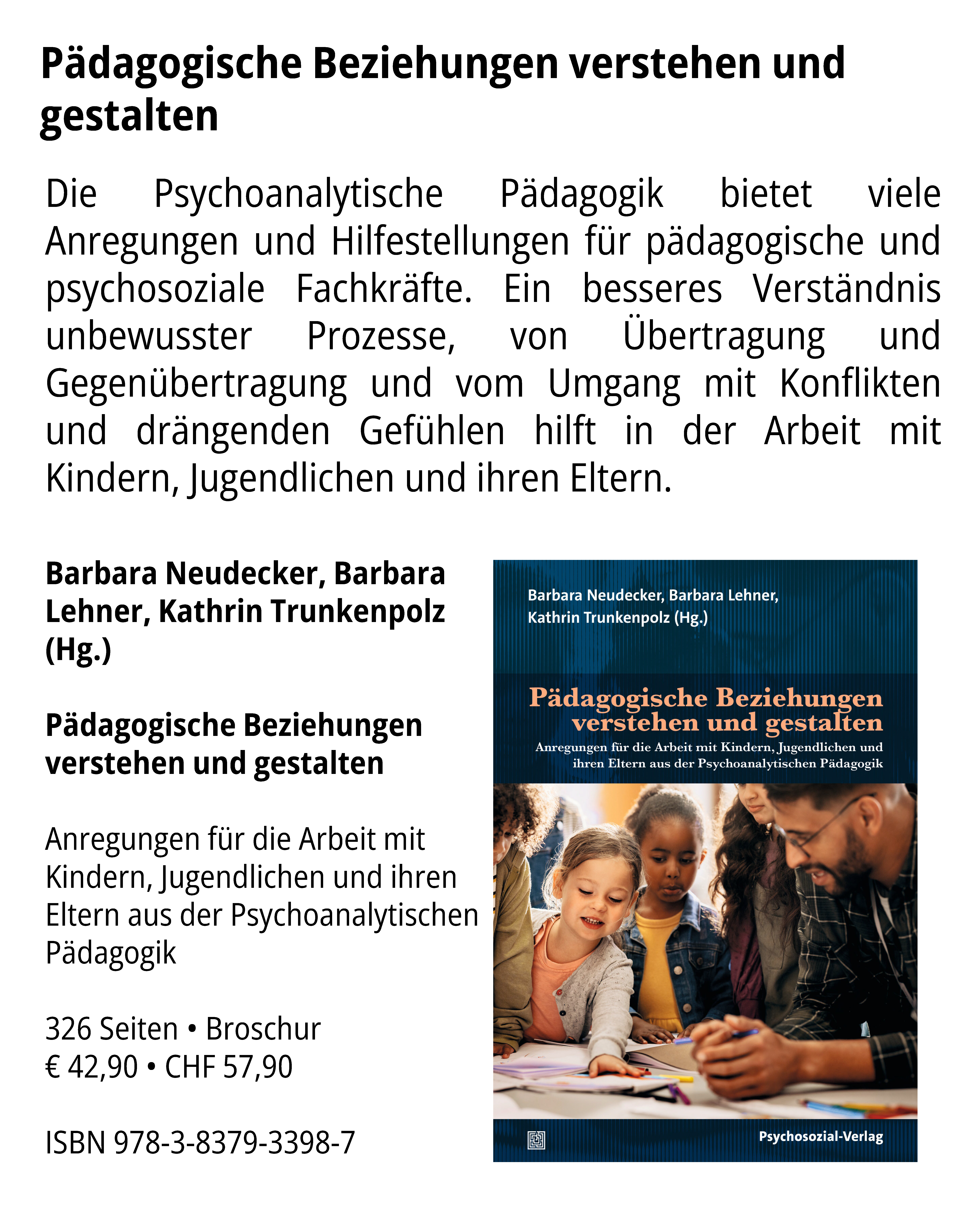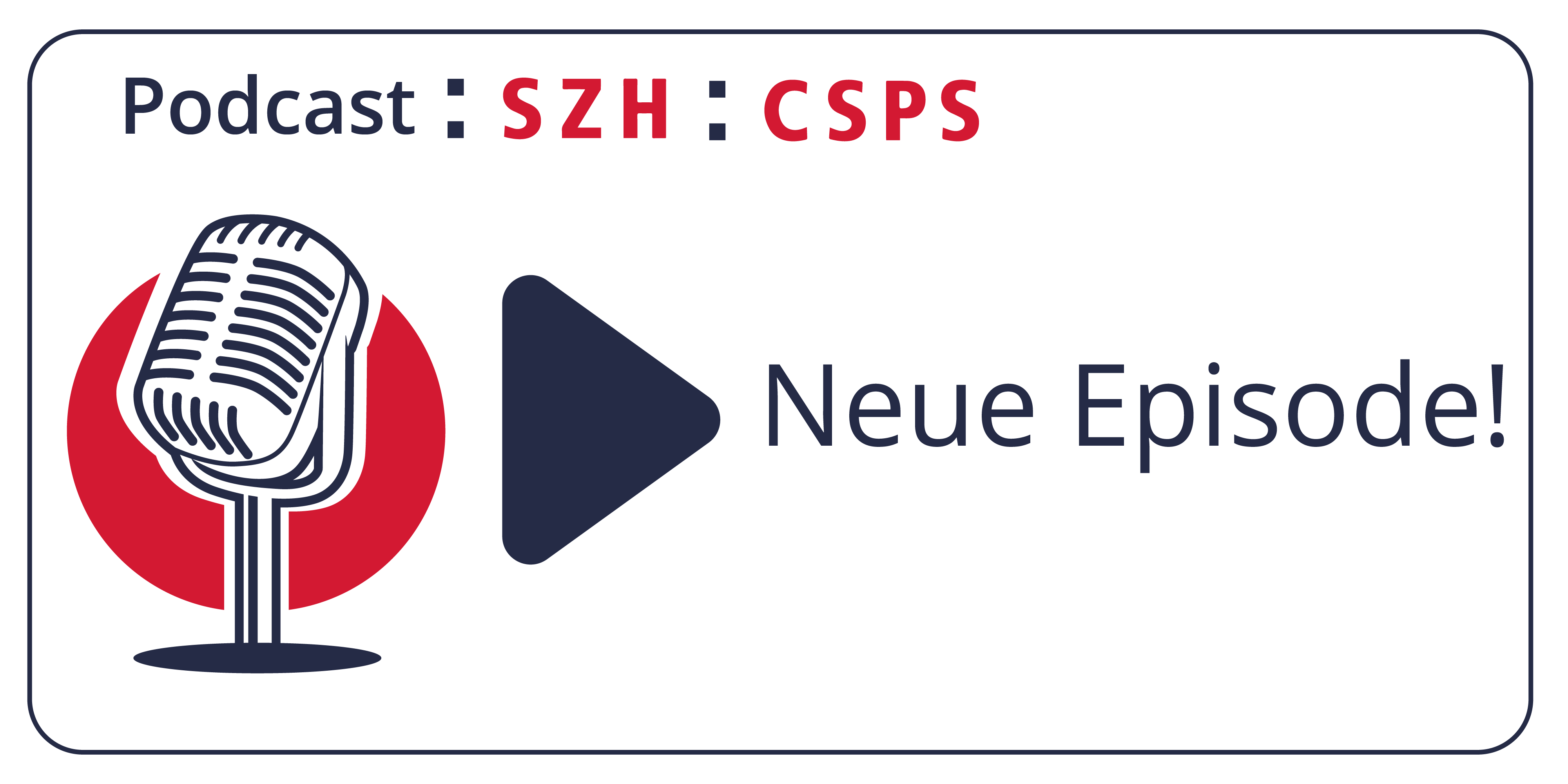Vom Umgang mit Diagnosen im Autismus-Spektrum
Umfassende Diagnosen helfen, situationsgerecht zu handeln
DOI :
https://doi.org/10.57161/z2023-08-03Mots-clés :
trouble du spectre de l'autisme (TSA), test diagnostique, diagnostic, encouragement, besoins éducatifs particuliersRésumé
Le nombre d'enfants et de jeunes ayant des troubles du spectre autistique (TSA) ne cesse d’augmenter. Les listes d'attente pour une évaluation sont longues et les possibilités de diagnostic deviennent plus différenciées, mais aussi plus complexes. Les mesures pédagogiques spécialisées doivent-elles continuer à augmenter au même rythme ? Il est permis d'en douter, comme l'argumente cet article. À l'aide des six principes directeurs du « National Guideline for the Assessment and Diagnosis of Autism Spectrum Disorders in Australia » (directive nationale australienne pour l'évaluation et le diagnostic des troubles du spectre autistique) et d'une étude de cas, nous formulons des recommandations pour une bonne gestion du diagnostic dans le spectre de l’autisme.
Références
Autism CRC (2023). National Guideline for the Assessment and Diagnosis of Autism Spectrum Disorders in Australia. Autism Cooperative Research Centre. https://www.autismcrc.com.au/access/national-guideline
Bochet, A., Franchini, M., Kojovic, N., Glaser, B. & Schaer, M. (2021). Emotional vs. Neutral Face Exploration and Habituation: An Eye-Tracking Study of Preschoolers With Autism Spectrum Disorders. Frontiers in Psychiatry, 11, 568997. https://doi.org/10.3389/fpsyt.2020.568997
Bölte, S. & Poustka, F. (2004). Diagnostische Beobachtungsskala für Autistische Störungen (ADOS): Erste Ergebnisse zur Zuverlässigkeit und Gültigkeit. Zeitschrift für Kinder- und Jugendpsychiatrie und Psychotherapie, 32 (1), 45–50. https://doi.org/10.1024/1422-4917.32.1.45
De Bildt, A., Sytema, S., Zander, E., Bölte, S., Sturm, H., Yirmiya, N., Yaari, M., Charman, T., Salomone, E., LeCouteur, A., Green, J., Bedia, R. C., García Primo, P., van Daalen, E., de Jonge, M. V., Guðmundsdóttir, E., Jóhannsdóttir, S., Raleva, M., Boskovska, M., Rogé, B., et al. (2015). Autism Diagnostic Interview-Revised (ADI-R) algorithms for toddlers and young preschoolers: application in a non-US sample of 1,104 children. Journal of Autism and Developmental Disorders, 45, 1–16.
Eckert, A., Liesen, C., Thommen, E. & Zbinden Sapin, V. (2015). Kinder, Jugendliche und junge Erwachsene: Frühkindliche Entwicklungsstörungen und Invalidität. Forschungsbericht Nr. 8/15. Bundesamt für Sozialversicherungen BSV.
Hadders-Algra, M. (2022). Emerging signs of autism spectrum disorder in infancy: Putative neural substrate. Developmental Medicine and Child Neurology, 64 (11), 1344–1350.
Krieger, B., Liesen, C. & Becker, H. (2018). Intensive Frühinterventionen bei Kindern mit frühkindlichem Autismus. Eine Übersicht zur bestehenden Evidenz und möglichen moderierenden Faktoren. Schweizerische Zeitschrift für Heilpädagogik, 24 (11–12), 40–46.
Krieger, B., Piškur, B., Schulze, C., Jakobs, U., Beurskens, A. & Moser, A. (2018). Supporting and hindering environments for participation of adolescents diagnosed with autism spectrum disorder: a scoping review. PLOS ONE, 13 (8), e0202071. https://doi.org/10.1371/journal.pone.0202071
Moody, E. J., Reyes, N., Ledbetter, C., Wiggins, L., DiGuiseppi, C., Alexander, A., Jackson, S., Lee, L.-C., Levy, S. E. & Rosenberg, S. A. (2017). Screening for Autism with the SRS and SCQ: Variations across Demographic, Developmental and Behavioural Factors in Preschool Children. Journal of Autism and Developmental Disorders, 47 (11), 3550–3561. https://doi.org/10.1007/s10803-017-3255-5
Liesen, C., Krieger, B. & Becker, H. (2018). Evaluation der Wirksamkeit der intensiven Frühinterventionsmethoden bei frühkindlichem Autismus. Forschungsbericht Nr. 9/18. Bundesamt für Sozialversicherungen BSV.
Liesen, C., Krieger, B. & Becker, H. (2019). Aussichtsreiche Therapien für Kinder mit frühkindlichem Autismus. Soziale Sicherheit CHSS, 2, 24–27.
Moser, M., Jenni, O. & von Rhein, M. (2021). Versorgung von Vorschulkindern mit Entwicklungsstörungen im Kanton Zürich. Primary and Hospital Care: Allgemeine Innere Medizin, 21 (7), 218–220.
Nogay, H. & Adeli, H. (2020). Machine learning (ML) for the diagnosis of autism spectrum disorder (ASD) using brain imaging. Reviews in the Neurosciences, 31 (8), 825–841.
Osterling, J., Dawson, G. & Munson, J. (2002). Early recognition of 1-year old infants with autism spectrum disor-ders versus mental retardation. Development and Psychopathology, 14 (2), 239–251.
Pozniak, K., King, G., Chambers, E., Martens, R., Earl, S., Kraus de Camargo, O., McCauley, D., Teplicky, R. & Rosenbaum, P. (2023). What do parents want from healthcare services? Reports of parents’ experiences with pediatric service delivery for their children with disabilities. Disability and Rehabilitation. https://doi.org/10.1080/09638288.2023.2229733
Stephenson, K. G., Beck, J. S., South, M., Norris, M. & Butter, E. (2021). Validity of the WISC-V in Youth with Autism Spectrum Disorder: factor structure and measurement invariance. Journal of Clinical Child and Adolescent Psychology, 50 (5), 669–681.
Thommen, E. (2019). Aktuelle Überlegungen zum Autismus. Soziale Sicherheit CHSS. https://sozialesicherheit.ch/de/aktuelle-ueberlegungen-zum-autismus
Téléchargements
Publiée
Comment citer
Numéro
Rubrique
Licence
© Christian Liesen, Beate Krieger 2023

Ce travail est disponible sous la licence Creative Commons Attribution 4.0 International .








